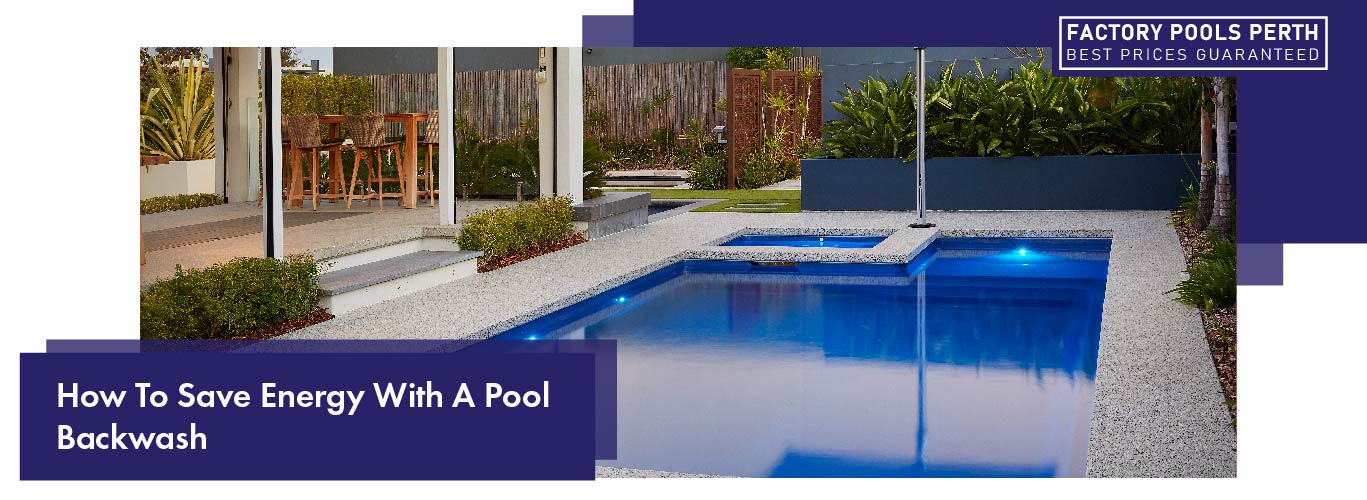How To Save Energy With A Pool Backwash
It’s common terminology among swimming pool owners, but it has nothing to do with the backstroke and personal hygiene!
The average swimming pool in Western Australia holds between 20,000 and 60,000 litres of water – that’s a lot of water. As a responsible pool owner, you need to ensure it is kept clean.
Backwashing your pool means backwashing your filter. It’s part of regular pool maintenance and is the act of cleaning out your filter and getting rid of the dirt accumulated in it. When you backwash a pool filter, you are reversing the direction of the water flow to dispose of contaminants that have built up that makes your filter less efficient.

Backwashing Your Swimming Pool
It’s just sand filters and DE (diatomaceous earth) filters that require backwashing. Cartridge filters don’t require a backwash, although they still need to be cleaned regularly by hosing them down.
In the summer months, you should backwash your sand and DE filter regularly. If you have had an algae outbreak or a big storm – that’s another prompt that you need to backwash.
Other signs that your pool needs a backwash include higher water pressure, restricted water flow, or cloudy water.
Backwash Your Pool The Efficient Way
When it is time to backwash your pool, here are some energy conservation tips to help.
- Don’t backwash your pool unless it warrants one, so avoid being overzealous in cleaning it. Frequent backwashing will reduce the effectiveness of filters. If your filter’s pressure gauge reaches 8-10PSI (pounds per square inch) above the normal clean pressure, then that’s a sure sign to backwash.
- When you are flushing dirty water down the pool drain, keep an eye on the water quality. Just wait until it runs clear. It usually takes no more than one or two minutes. If you backwash too long, you could waste hundreds of litres needlessly.
- Products exist to filtrate water that has been gone through a backwash for reusing in your swimming pool. These products allow the water to be captured, treated, and filtered.
- Use backwash water on shrubs and lawns to irrigate plants. However, remember it is illegal to dispose of it in stormwater systems. The water needs to absorb within the boundaries of your block, so avoid any runoff entering adjacent properties.
- Larger pool filters will need less backwashing than smaller ones. The increase in filter size means you have a larger area to collect dirt and debris so you can maintain optimal water pressure for longer.
Factory Pools Perth manufactures and installs fibreglass swimming pools for the family to enjoy at affordable prices. Our fibreglass pools use a gelcoat that meets international standards and won’t fade and crack and come with a lifetime structural and surface guarantee.
We have a range of swimming pools to suit your requirements, all made locally at our eco-friendly facility in Forrestdale. Get ready for swimming pool season in WA! Come and look at what’s on offer at our showrooms in O’Connor, Mandurah and Joondalup.

